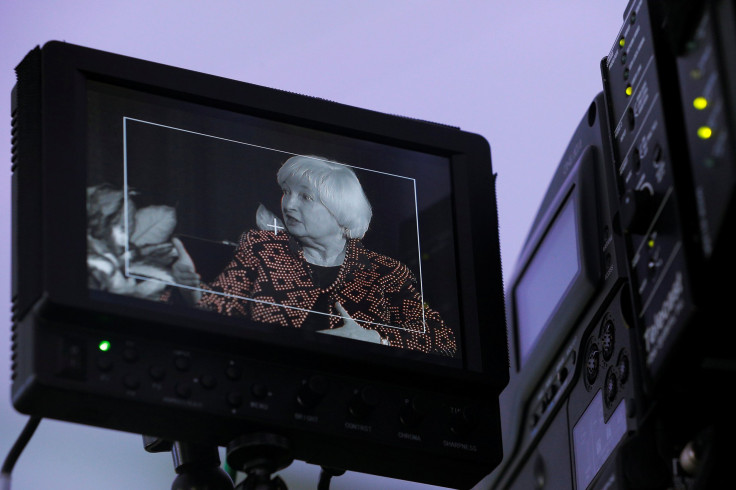Janet Yellen’s Congressional Testimony: Global, Domestic Uncertainties Continue To Dog Fed Chairwoman

The United States Federal Reserve Chairwoman Janet Yellen will appear before Congress Tuesday and Wednesday for a semi-annual testimony during which she is expected to offer fresh insights into the recent shift in her economic outlook. The so-called Humphrey-Hawkins hearings come just days after the Fed’s latest policy meeting and close on the heels of Yellen’s downbeat assessment of U.S. economic prospects — an outlook fuelled by the release of a weaker-than-expected jobs market data.
“It is always a minefield when the Fed chair goes to these semi-annual hearings, but there are even more mines in that field this time around,” Steve East, an analyst at the research firm Height Securities, told MarketWatch.
Last week, amid worries about slowing job growth in the country, Yellen and other Fed officials indicated that there might be just one rate hike this year — further fanning uncertainties about when and how the central bank would act.
Earlier in June, after the Labor Department released a disappointing May employment report that showed employers added just 38,000 jobs in the month, Yellen stressed that the Fed will not raise its short-term interest rates until “considerable and unavoidable” uncertainties affecting the economic outlook were resolved. The comments were seen as an acknowledgement that the temporary headwinds that Yellen has blamed for crimping economic growth in the past may persist for longer than expected.
“The uncertainties are sizable, and progress toward our goals and, by implication, the appropriate stance of monetary policy will depend on how these uncertainties evolve,” she said at the time.
Over the next two days, lawmakers are likely to grill Yellen for further clarity on her monetary policy and economic outlook.
At a press conference last Wednesday, Yellen also cited the uncertainties regarding the U.K.’s potential exit from the 28-nation European Union as a reason for putting a further rise in interest rates on hold.
“Brexit, the upcoming U.K. decision on whether or not to leave the European Union, is something we discussed, and I think it’s fair to say it’s one of the factors that factored into today’s decisions,” Yellen said. “Clearly this is a very important decision for the United Kingdom and for Europe. It is a decision that could have consequences for global financial markets. It could have consequences in turn for the U.S. economic outlook.”
On Tuesday and Wednesday, the Fed chief could face pressure from lawmakers to be more specific about the potential financial risks the U.S. faces if the U.K. chooses to leave the EU.
“I think this hearing will be a key moment to look at the Fed’s dual mandate domestically and its role globally,” Aaron Klein, a fellow at the Brookings Institution, told the Wall Street Journal.
© Copyright IBTimes 2025. All rights reserved.






















